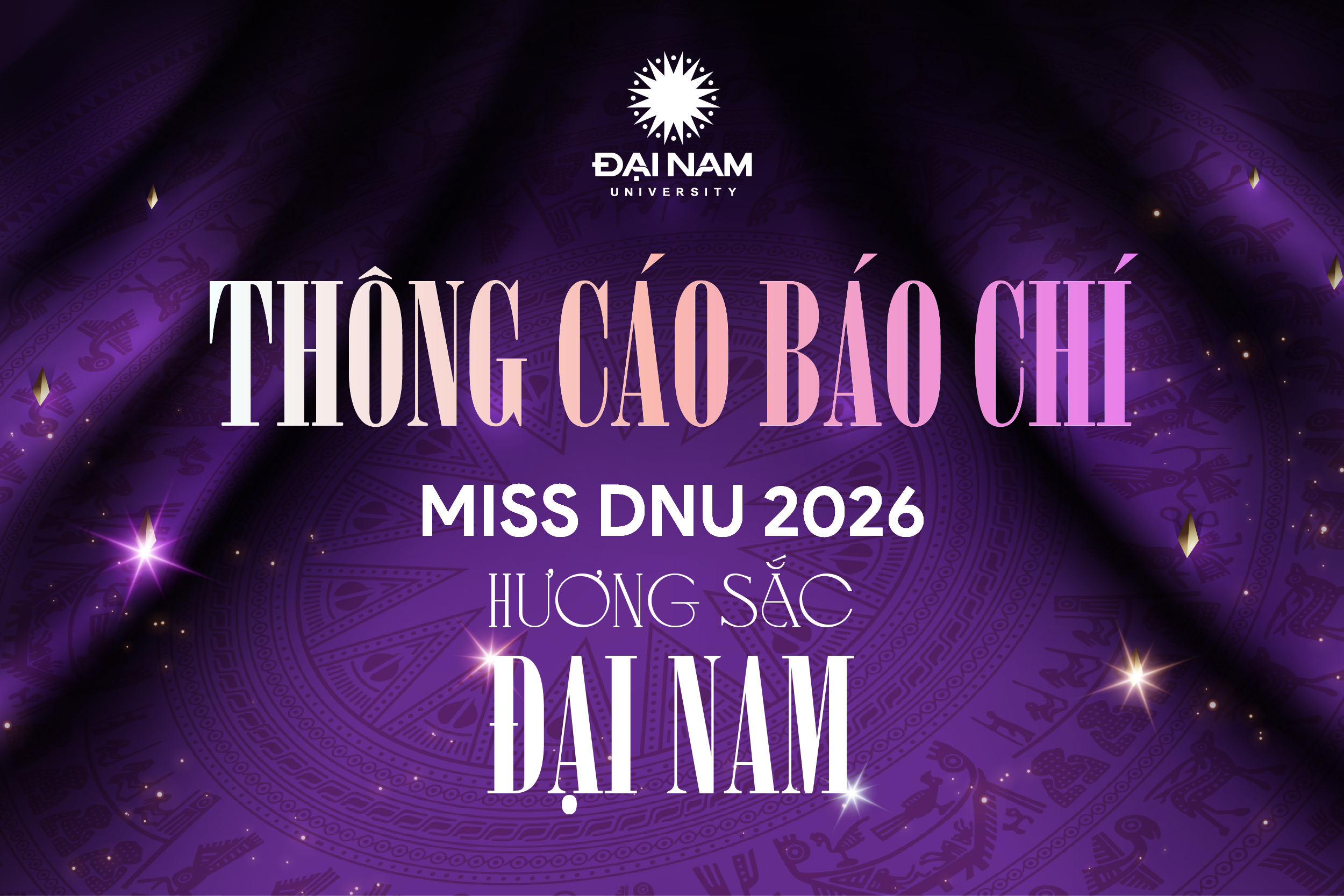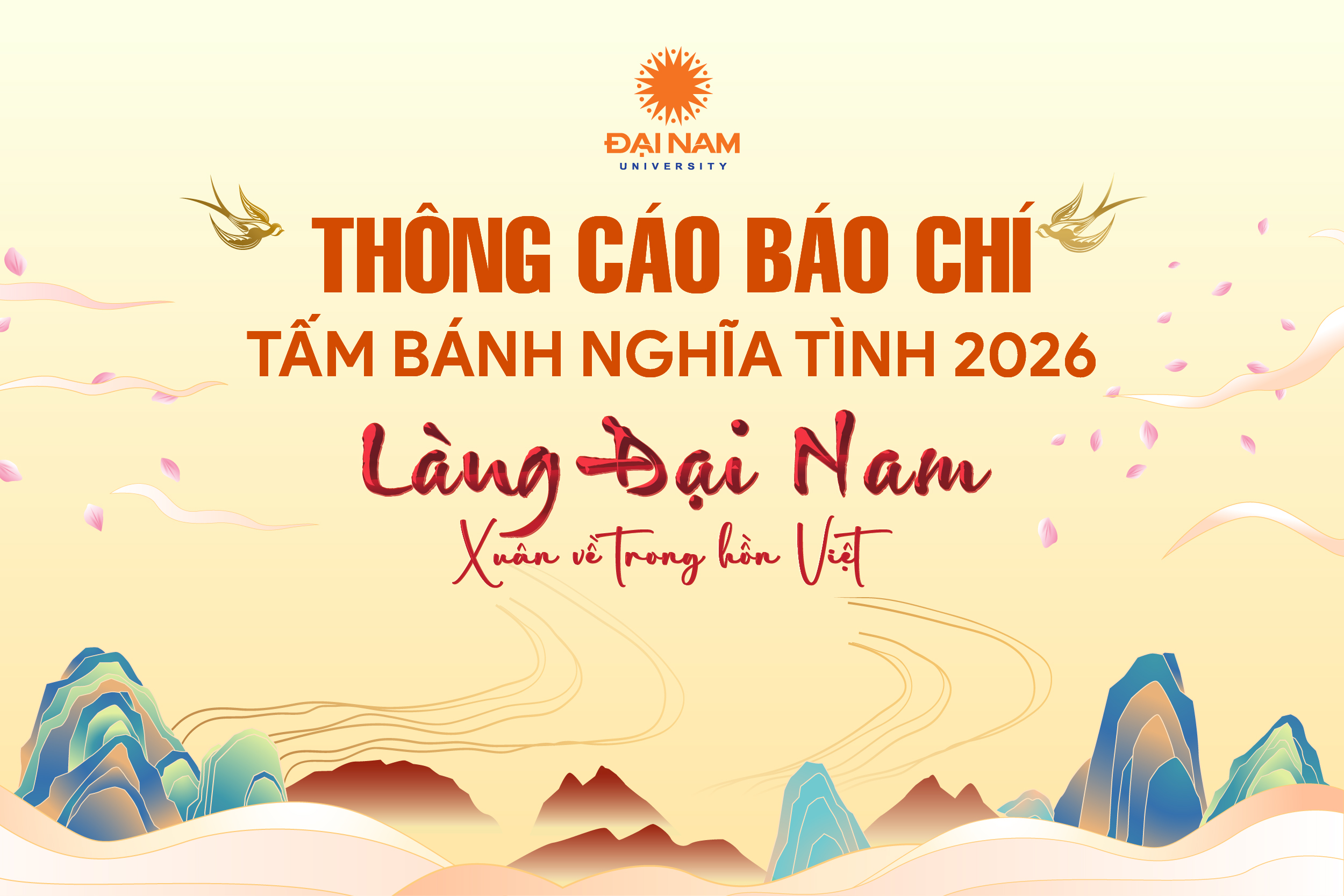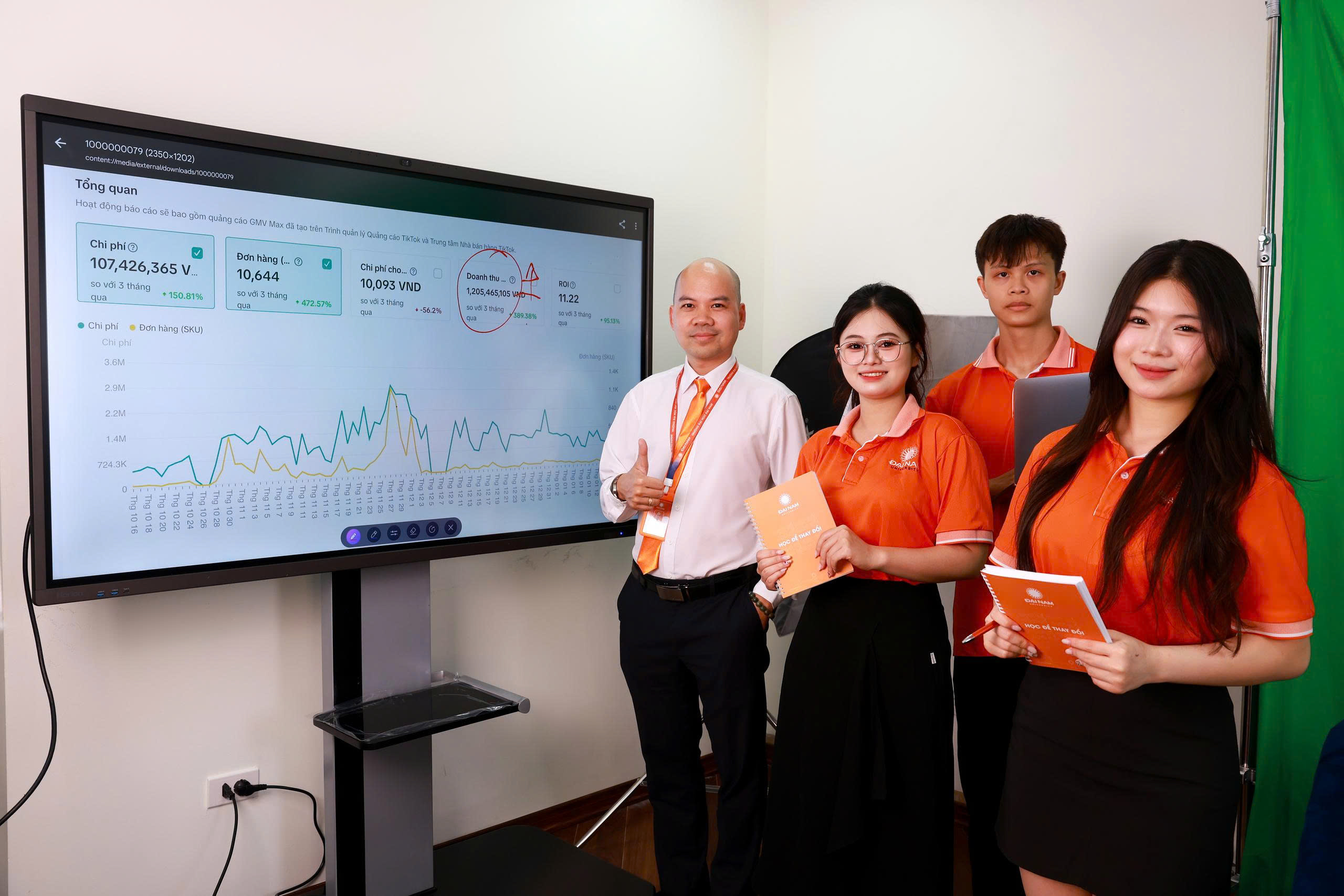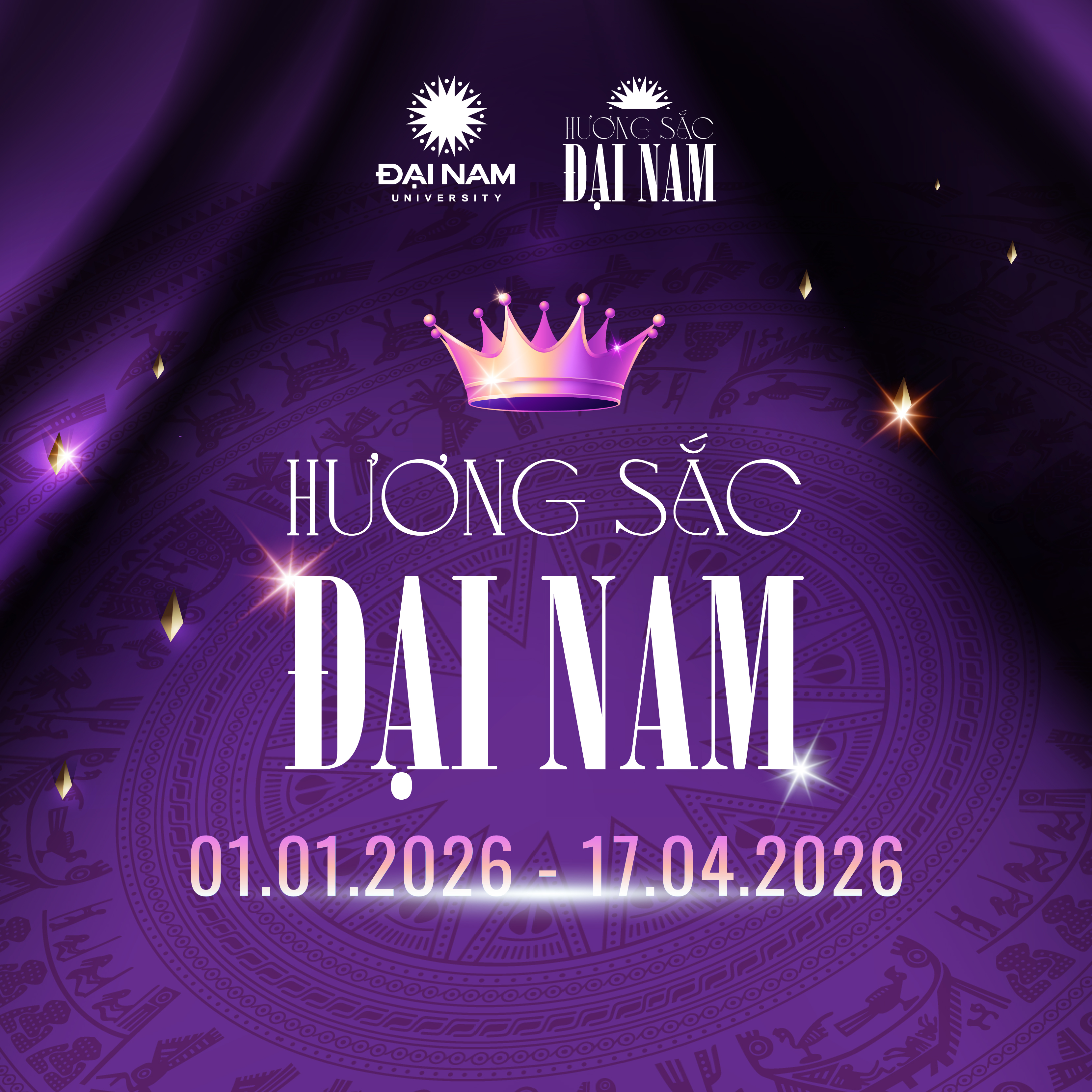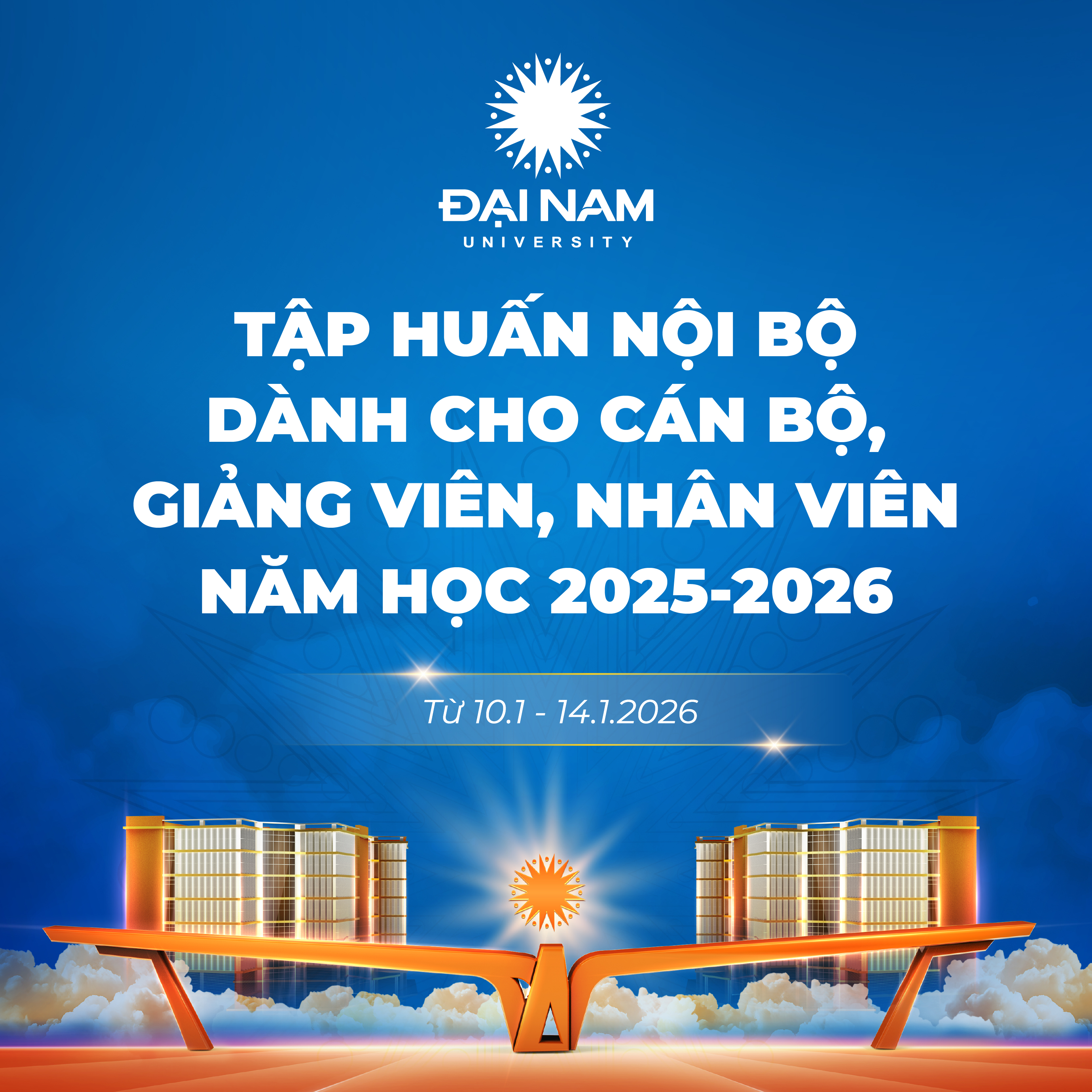Why do students need to do scientific research?

Students do scientific research not to become "scientists", but to train themselves to have a rigorous, profound and systematic way of thinking. It is to learn how to look at problems not only with emotions, but with reasoning, with data and clear verification. At Dai Nam University, scientific research is not something far away. It is a practical and close part of the journey to maturity. A journey where students have the right to be curious, the right to experiment, the right to make mistakes - and from those experiences, they learn how to think independently and go in the right direction every day.
205 topics - 51 topics for school-level awards
In the 2024-2025 school year, Dai Nam University students have carried out 205 scientific research projects. Of these, 51 projects were selected for school-level awards. These numbers not only demonstrate diligence, but also demonstrate the spirit of dedication and desire to explore of a generation of students who want to learn deeply - understand thoroughly - and master the future.
Each topic is a new perspective, a real question – about business, about AI, about modern communication, or even about public health care. From economics, engineering to health, languages – students are proving that: studying at university is not only about learning knowledge, but also about learning how to look at life in a more scientific and responsible way.
And the precious thing is: behind each research group, there are always teachers who silently accompany - giving advice, correcting, and encouraging each step. Being a teacher is not only teaching, but also "going along" and "passing on the fire".
The impact of scientific research in the journey of student maturity
Scientific research is not only an academic activity, but also an environment for training thinking and self-discovery.
Here, students learn:
-How to ask the right questions – the beginning of all scientific thinking
- How to analyze, debate and present issues logically and convincingly.
- Real teamwork – not just dividing work, but taking responsibility for the common results.
- And most importantly, students have the opportunity to understand themselves better: what they care about, the values they pursue and the path they want to take. Many topics this year have been published in specialized journals. Many student groups have been asked by businesses to conduct experiments. And for many students, the research journey is a launching pad to apply for scholarships, study abroad or find a job that matches their passion.
Each topic has the dedicated support of teachers.
MSc. Pham Thi Thu Hien - Deputy Director of the Institute of Postgraduate Training and Science and Technology shared: “The highlight of this year's topics is the careful investment in content and methods. Students have learned how to combine specialized knowledge with practical data, develop feasible models, and open up many new application directions. In particular, the role of the instructor as an 'academic friend' has fueled the student groups.”
Result:
- Economics Block (17 topics): Many topics were published in prestigious magazines. There was 01 First Prize, 03 Second Prizes.
- Language - Communication Block (15 topics): Outstanding with interdisciplinary thinking and sharp criticism. There is 01 First prize, 03 Second prizes.
- Technical Block (7 topics): Focus on AI, software engineering, high practical applications. There is 01 First prize, 01 Second prize.
- Health Block (12 topics): Proposing community intervention policies. There is 01 First prize, 02 Second prizes.
Associate Professor Dr. Do Anh Tai – Vice Principal of the school also affirmed: “Scientific research is not only for those who follow the academic path. It is a journey that helps students practice critical thinking, learn how to approach problems systematically, and especially develop very practical skills such as teamwork, presenting ideas and sticking to industry practices.”
In the near future, Dai Nam will continue to:
· Expanding the fund to support student research,
· Organize a larger scale science idea competition,
· Connect with businesses to put research products into practical applications,
· Support publishing topics in prestigious domestic and foreign journals.
Scientific research is not an easy path. But it is a path worth taking. You don't have to be the best to start doing research. You just have to dare to ask questions, dare to step out of the "textbook", dare to try and dare to persevere to the end. Who knows, from a small topic, you will discover the greatest thing: you are much stronger than you think.
BTT

